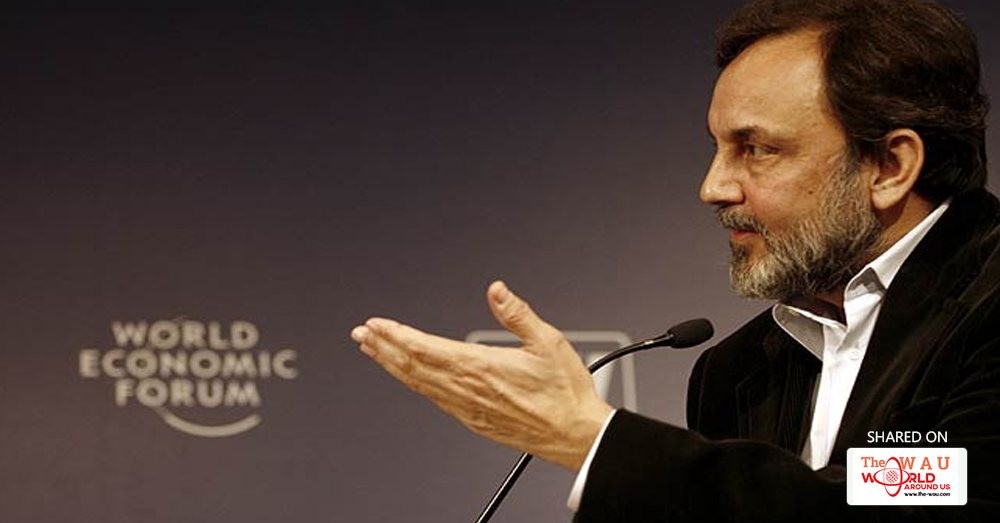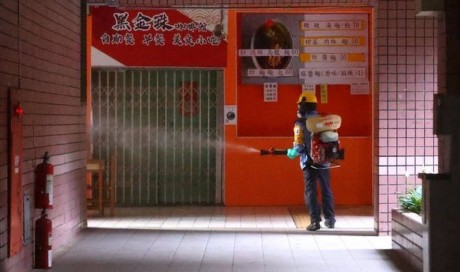This week's raids on NDTV by the CBI have been reported across the world with commentators discussing the threat to freedom of the press. Here are reports from world media:
NDTV has often reported critically on policies put forward by Mr. Modi's government, and frictions have surfaced recently on the air, including a segment in which an anchor asked a spokesman for the prime minister's Bharatiya Janata Party to apologize for a comment or leave the set.
India’s main investigative agency on Monday raided residences and offices connected to the founders of NDTV, an influential cable TV station that has had run-ins with Prime Minister Narendra Modi’s government over its news coverage.
The agency, the Central Bureau of Investigation, cited “causing an alleged loss to a bank” as the reason for the four simultaneous raids. The agency has registered cases against Prannoy and Radhika Roy, a married couple who founded NDTV, in connection with a loss of about 480 million rupees, or nearly $7.5 million, sustained by ICICI, a private bank, said R. K. Gaur, a spokesman for the agency. Mr. Gaur said a private company and “others” were also being investigated.
But NDTV called the raids a politically motivated “witch hunt,” and journalists for other Indian news outlets cast them as retaliation for the station’s coverage. NDTV has often reported critically on policies put forward by Mr. Modi’s government, and frictions have surfaced recently on the air, including a segment in which an anchor asked a spokesman for the prime minister’s Bharatiya Janata Party to apologize for a comment or leave the set.
“We will not succumb to these attempts to blatantly undermine democracy and free speech in India,” said an unsigned statement posted on NDTV’s website. “We have one message to those who are trying to destroy the institutions of India and everything it stands for: We will fight for our country and undermine these forces.”
In 2015 and 2016, transactions by NDTV principals were flagged by the Enforcement Directorate and the Income Tax Department for regulatory violations.
The criminal complaint in the Central Bureau of Investigation case, submitted on Friday, three days before the raids, alleges that the Roys took a loan of around 3.5 billion rupees from ICICI in 2008-9, putting up their shareholdings in the company, at an inflated value, as collateral.
The shares put up as collateral amounted to 61 percent of the voting capital, the complaint says, although Indian banking regulations set the upper limit at 30 percent. The Roys then paid the bank 3.5 billion rupees a year later, according to the complaint, failing to pay almost 500 million rupees in accrued interest.
It goes on to say that the bank made no attempt to recover the 500 million rupees in interest. The complaint charges the Roys with criminal conspiracy, fraud and criminal misconduct, saying they laundered funds “through a labyrinth of shell companies and a complex web of fund routing” and failed to make necessary disclosures to oversight agencies.
NDTV, in a statement, said the ICICI loan was repaid more than seven years ago. A 2009 letter from the bank, included as part of the criminal complaint, confirms that the “entire amount due,” amounting to 3.75 billion rupees, had been paid.
Tension between NDTV and the government over the station’s reporting has been brewing for some time.
Last year, the government imposed an unusual one-day ban on NDTV’s Hindi channel, on the grounds that it had disclosed sensitive information in its reporting on an insurgent attack on an Indian air base. The channel protested, saying that its reporting went no further than any other channel’s and that it was entirely based on official briefings.
The raids on Monday were viewed with alarm by many journalists. Praveen Swami, a reporter who covers security for The Indian Express, a daily newspaper, called them “a defining moment” for Mr. Modi’s government.
Loan defaults are common among India’s large corporations but rarely draw such high-level action, Mr. Swami said.
“A message is being sent out,” he said. “The fact that these raids are being carried out in 2017 for crimes that were purportedly committed in 2010 raises some doubt as to whether the real intent is to unearth evidence, especially given that this outlet is uniquely critical of the government.”
It is not unusual for Indian leaders to favor sympathetic news organizations or to cut off access in response to critical coverage.
But Mr. Modi’s government has established an unusually tough line in recent months. This year, neither he nor any member of his cabinet attended the yearly business summit meeting organized by The Economic Times, which is part of the conglomerate that publishes The Times of India, and which had run skeptical coverage about the Bharatiya Janata Party’s campaign in Uttar Pradesh state elections.
Mr. Swami said that while he had not faced pressure in his own reporting, “journalists who are very influential are finding that their access has been cut off” if they challenged the government’s narrative on politically delicate topics, including demonetization and Hindu causes.
N. K. Singh, a former joint director of the Central Bureau of Investigation, said that it was unusual for the agency to conduct a raid on a media organization and that scrutinizing the terms of a loan by a private bank was also unorthodox.
“Economic offenses are within the domain of the CBI, but not like this,” he said. “ICICI said they have paid the loan. So in such a gray area, why launch raids?”
Correction: June 5, 2017
Because of an editing error, an earlier version of this article misspelled the name of the Indian prime minister. He is Narendra Modi, not Narenda
Share This Post












